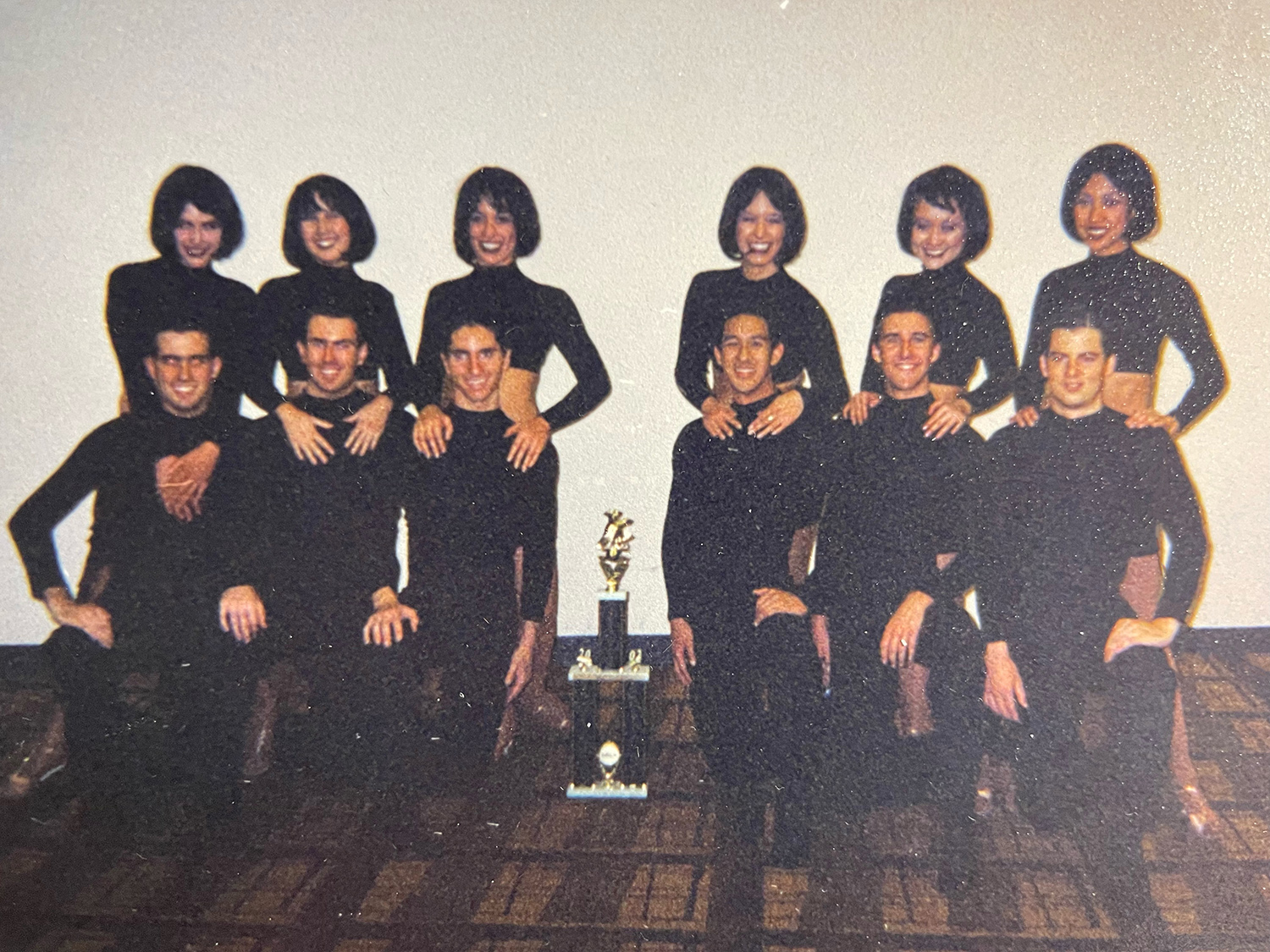When Tracy Wang ’04 arrived at CMC as a government major, she had no idea that her career would land in the world of big tech, where she currently explores the impact of technology on how people work and behave.
Now a senior research program manager at Microsoft’s Azure Engineering, the tech company’s cloud computing platform, Wang’s mission is to study what motivates people and to improve their experience with the technology platform.
It’s the ideal match for Wang, who landed with Azure after 15 years of studying memory and attention as a cognitive neuroscientist. As a human insights researcher, Wang sees “the immediate impact of our work on the world around us. This is a very big, emerging space. I’m looking at how people interact, not just with the people around them, but with the technology around them.”
But it was the world of politics that initially engaged Wang. As a high school student in the San Fernando Valley, she volunteered for both statewide and national political campaigns. The experience “changed my trajectory,” she said, piquing an interest in human behavior and leading her to apply to CMC, lured by the College’s strong government department.
Wang eventually followed her deepening interest in human behavior, switching her major from government to neuroscience halfway through her time at CMC. (But not before she took Prof. Jack Pitney’s Congress course, which she describes as her favorite at CMC.)
“I was very interested in why people act the way they do, what motivates them to say the things they say, and do the things that they do,” she said. “And with my personality, I want to understand the biological basis for the psychology of these things.”
According to Wang, her segue from government and policy into psychology and neuroscience wasn’t as drastic as it sounds. “Everything is related to people. Everything is related to how people function, how communities function, and how to make that better. You can either approach from the government and policy route, or you can do what I ended up doing, which is to make an impact through science. There are many different routes to get to what you want to do. I think that's a big lesson that CMC taught me.”
As she pursued her new major, Wang tapped into resources at the other 5Cs, working as a research assistant on a multi-year grant from the National Science Foundation with Neuroscience and Psychological Science Professors Richard Lewis and Nicole Weekes at Pomona. In addition, Wang collaborated with Lewis and Weekes on a research paper published in the journal, Biological Psychology.
When it came time to lead her own research for her senior thesis, Lewis served as Wang’s adviser. Wang’s thesis was ambitious, deploying experiments focused on spatial ability, “using mental rotations as a proxy, and EEG to measure neural activity associated with mental rotation,” she recalled. “That was nearly 20 years ago, and I still remember it.”
Her vision and diligent work paid off, and Wang was rewarded in 2004 with CMC’s Departmental Award for "Best Thesis in Neuroscience."
Fueled by her success, Wang continued her academic journey. She earned her MS in Neurobiology and Behavior from UC Irvine and finished her PhD at UT Dallas before embarking on a six-year post doc at UT Austin, with three years of research funded by a prestigious National Institutes of Health (NIH) fellowship.
“A lot of that research was in human memory. We used neuroimaging (fMRI) to look at memory correlates in the brain. In my postdoc, I did ‘intentional forgetting’ work on how people purposely forget, using machine learning methods to predict patterns of brain activity associated with intentional forgetting,” Wang said. Her study was impactful, garnering attention from major media outlets, such as the New York Times.
Wang’s life however isn’t fully submerged in scientific research, as she firmly believes in nurturing her creativity — in Wang’s case, ballroom dancing, which she discovered at CMC.

“It was one of those things when you go to college, and you want to reinvent yourself, and try something that you haven't done before,” Wang recalled. “The Claremont Colleges Ballroom Dance Company (CCBDC) was a huge part of my years at CMC. I think I spent 30 percent of my time there, if not more,” said Wang, who was also a member of CCBDC’s competition team.
Now a devotee of West Coast Swing dance, Wang still dances, and is managing partner and co-founder of Wild Wild Westie, a four-day West Coast Swing (WCS) dance competition and social dance event held annually in Dallas.
Through her involvement, she’s struck solid friendships and even found a connection to her scientific work. “I'm really interested in how people gather communities,” Wang said. “What started as a small dance event that you think may just be an arena where people gather, over time, you see that it’s where people meet their significant others or best friends.”
Co-owning Wild Wild Westie allows Wang to bring science and creativity together. “Both of these aspects of my life complement each other,” she said.
Plus, the physical activity enhances her own overall health. “I did aging research for a very long time, and one of the best things you can do to keep your brain healthy is to keep your heart healthy!”
Being a student at CMC, she said, encouraged her ability to combine disciplines. “CMC taught me how to think in a multidisciplinary way. Being there taught me to go beyond the silos of my major, and my career path. CMC was very instrumental in informing how I think about things. I never see a ‘No’ as a ‘No.’ It's ‘How do I get there?’”

